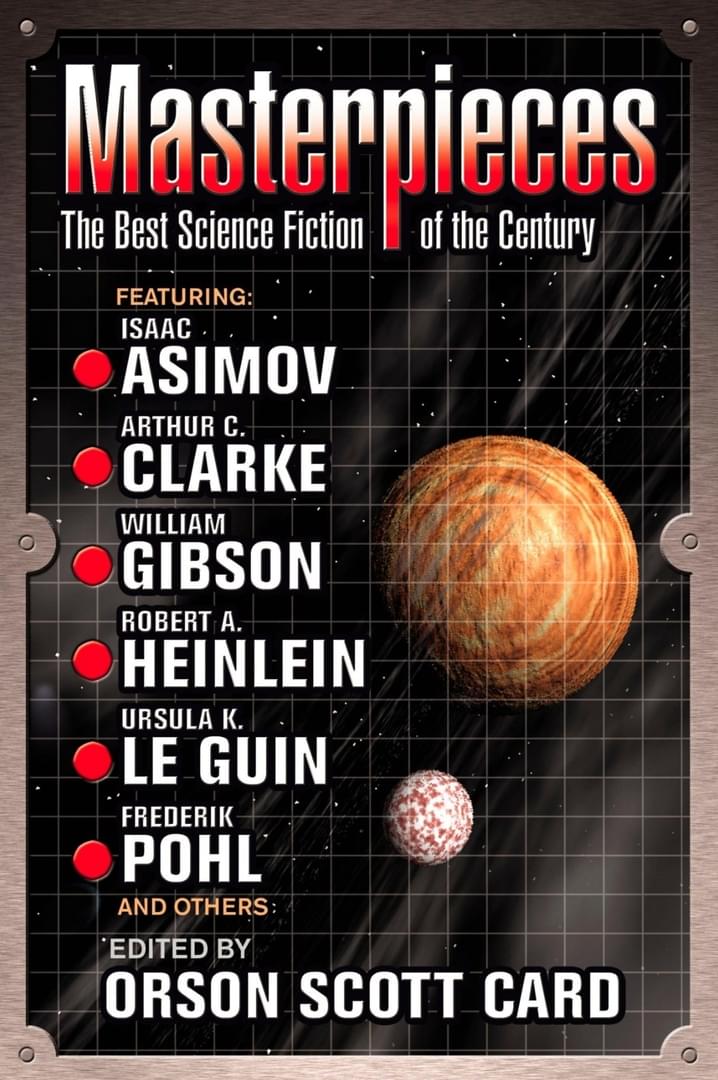I just read:
Masterpieces: The Best Science Fiction of the Twentieth Century - Ed. Orson Scott Card
There are many 'best of' anthologies that aim to collect the finest short stories of the genre. Many have covered the golden age well and the Hall of Fame books, edited by Robert Silverberg, are semi official 'best of'' anthologies that collect many classic tales up until the start of the Hugo's (i.e. 1964). This volume, edited by Orson Scott Card, is attractive as it includes numerous classics missing from the Hall of Fame volumes, and secondly, because it covers three distinct eras: the golden age, the new wave, and the media generation.
The golden age section includes some great classic stories, including Poul Anderson's
Call me Joe, and Robert Heinlein's
All You Zombies— . The Heinlein is perhaps the great time travel paradox story, and a challenge to get your head around. Also in this section are a Theodore Sturgeon that I liked (
A Saucer of Loneliness), which is unusual as I rarely like his work, and the great old Edmund Hamilton tale,
Devolution.
The second section - the new wave - is perhaps the strongest, containing Harlan Ellison's
"Repent Harlequin!", Said the Ticktockman, Robert Silverberg's
Passengers, and Larry Niven's
Inconstant Moon, all of which are five star stories. Silverberg's story particularly impresses and is highly recommended. Also in this section are other famous stories that have a lot of merit, though they are not perfect for me. Ursula Le Guin's
The Ones Who Walk Away from Omelas is thoughtful philosophy, but with no plot or characters is not actually a story and the R.A. Lafferty tale (
Eurema's Dam) is typically surreal and quietly impressive, but he wrote many much better stories and is therefore an odd choice.
The media generation section contains a few very good stories. George R.R. Martin's
Sandkings is superb (his short SF generally is), and the C.J. Cherryh story (
Pots) is also a strong entry. However, it must be said that it was a strange choice - in a volume that aspires to gather the finest SF from the entire century - to include six stories from 1985. One gets the impression Card had simply read a lot of work in '85, and selected from that. This odd bias toward the mid-80's lets the volume down rather, given what could have been selected from the hundred years on offer.



